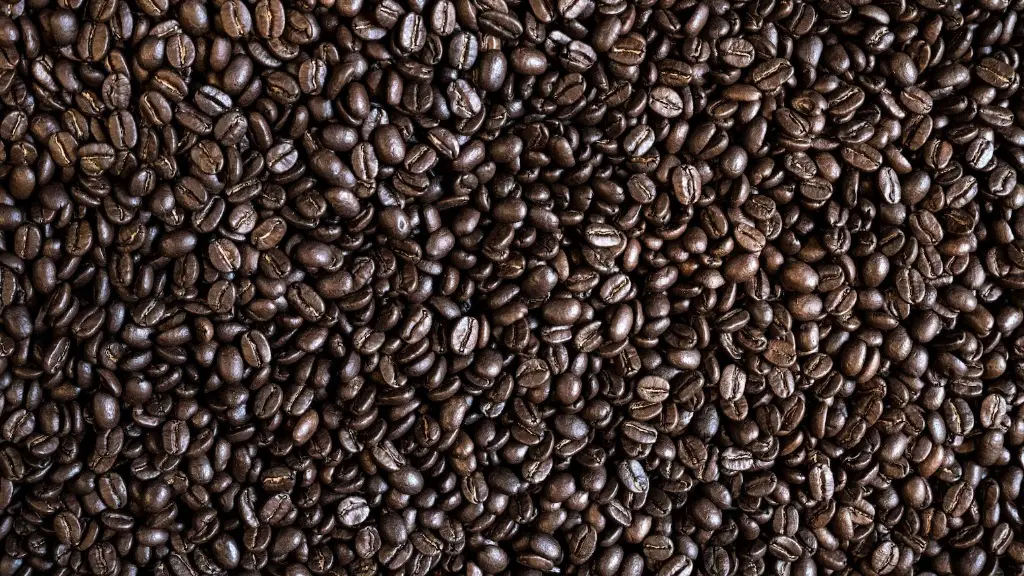Intermittent fasting has become a popular way to lose weight and boost overall health, with more and more people talking about the benefits of this type of dieting. Though there is still a lot of confusion as to what constitutes as a fast and if coffee with milk is allowed while fasting.
When people fast intermittently, they are actually just restricting their eating times, either to specific hours of the day or a span of consecutive days each week. Depending on the strategy chosen, followers may fast for 14-16 hours a day, or for 24 hours or even up to three days a week. During this time, fasting participants are not only encouraged not to eat but to also abstain from drinking coffee with milk.
Coffee itself is considered to be a calorie-free beverage, as long as it isn’t mixed with sugar, syrups, or anything else. Therefore, regular black coffee for most intermittent fasting plans is allowed during fasting. But, that does not mean that coffee with milk should be; especially not cow’s milk.
Intermittent fasting participant must stick to just water and black coffee during their fasts. Even though the calories present in cow’s milk are low, they still aren’t nil and consequently, they will break your fast. Adding a dairy-based product can mess up the hormones that are stimulated while fasting, particularly insulin. Caffeine itself may even interfere with insulin functioning, so when combined with the other components of cow’s milk, a fast can be significantly affected as a result.
Besides the hormone disruption, drinking coffee with milk while fasting can also interfere with your weight loss journey if that is the plan. Fasting is a form of dietary restriction which is used to reduce levels of body fat. Even if sticking to whole dairy products like yogurt, feta, or cheese, any calories at all can prevent lipolysis and therefore block the benefits of intermittent fasting.
Many experts suggest that the best way to prepare for a fast is to make sure to include calorie-free beverages that are hydrating, like plain water, unsweetened, calorie-free tea, or black coffee.
Calories in Different Types of Milk
When attempting to adhere to an intermittent fasting routine, it is important to be mindful of the calories in different types of milk. Cow’s milk, almond milk, or oat milk all differ in calorie amounts. For instance, the calories in cow’s milk, per cup, is roughly 146; almond milk contains around 40 calories and oat milk around 130.
Additionally, almond milk and oat milk are seen as healthier alternatives because their calories come from fruits, nuts, and grains – however, it’s important to read the label before using any of these types of milk in coffee, as nut-based products often contain added ingredients, such as sugar or preservatives, which can affect the outcome of a fasting period.
Regardless of which type of milk is consumed, it’s recommended to remain consistent with calorie restrictions and opt for stuck to plain black coffee, if adhering to an intermittent fasting plan.
Effects of Coffee on Intermittent Fasting
Although it’s ok to drink coffee while fasting, the effects of coffee on intermittent fasting should not be taken lightly. Besides adding calories to the body, the caffeine content of a cup of coffee can have unexpected consequences. For instance, the caffeine of a cup of coffee can cause a surge of adrenaline and cortisol, both of which can disrupt the desired effects of a fasting plan.
The good news is that, when consumed sparingly, one cup of coffee per day can actually boost the desired effects of intermittent fasting, as it speeds up the human body’s metabolic rate. Additionally, coffee includes antioxidants like chlorogenic acid, melanoidins, and quinines, which can actually help the body stimulate enzymes that turn fatty acids into energy.
When it comes to caffeine and intermittent fasting, moderation should be observed in order to maximize the effect. It’s also important to note that every individual should be mindful of how coffee affects their body, as everyone might have a different response.
Pros and Cons of Consuming Coffee with Milk during Intermittent Fasting
Having looked at the effects coffee has on intermittent fasting, it can be safely said that the pros and cons of coffee with milk while fasting are closely connected. On the one hand, coffee can be beneficial when it comes to intermittent fasting, as it can help to boost the metabolism, provide a surge of energy, and even contain low fat-burning proteins. On the other hand, coffee with milk can act as an interference, as it can provide a surge of energy-boosting hormones, and can also take away from the fasting goals when the calories in milk are taken into account.
Varying Intermittent Fasting Plans
Depending on the goals of the individual, there are several types of intermittent fasting plans that can be adopted. Some of the available plans include time-restricted fasting, alternate-day fasting, and whole-day fasting. Each of these strategies requires different alterations to the daily diet, and each one varies in terms of the restrictions placed on food, as well as the amount of black coffee and other calorie-free beverages that can be consumed.
For example, while time-restricted fasting may only require a few hours of no food intake a day, alternate-day fasting requires at least one day of eating and one day of fasts throughout the week. Whole-day fasting, on the other hand, requires fasting for a consecutive period of several days. After deciding a fasting strategy, one should commit to it and be mindful of their overall diet within the plan.
Intermittent Fasting Benefits
Intermittent fasting can be beneficial for a variety of reasons. For starters, it can help improve blood sugar levels, minimize inflammation and oxidative stress, as well as aid in weight loss. According to various studies, intermittent fasting may also benefit the body on a cellular level. It has been hypothesized that the restriction of food intake, when combined with a balanced lifestyle and proper nutrition, can play a role in delaying aging and the onset of chronic diseases.
Additionally, recent research suggests that intermittent fasting can affect cognitive functioning, as fasting has been connected to better performance in problem-solving and other similar tasks. That said, it’s important to note that new research is being conducted in the field of intermittent fasting, however, and so it is important to remain informed in order to be able to make the right decisions when it comes to dieting.
How to Start Intermittent Fasting
Getting started with intermittent fasting can be daunting, especially if one is unsure of what type of fasting plan they should adopt, let alone if they can drink coffee with milk during the fast. Most experts suggest that the best way to start is to begin with time-restricted fasting, making sure to stick to one type of fasting plan for an extended period of time in order for it to become a part of daily routine.
When starting intermittent fasting, it’s essential to be mindful of water and calorie-free beverages, and focus on nourishing healthy meals that do not include dairy. Preparing meals in advance can help and create a routine to stick to, while avoiding snacking and late night meals. Being informed on intermittent fasting, as well as on the basic nutritional needs of the body, can set one up for success.
Overall, drinking coffee with milk during intermittent fasting can affect the hormones that help in the fasting process, and can negatively interfere in desired results. Therefore, sticking to regular black coffee or calorie-free beverages and alternating the intermittent fasting plan can be beneficial when it comes to reaching the expected outcomes.





